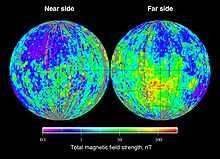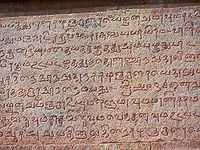Terminology

“[T]he main goal of terminology is not to represent concepts in order to manipulate them (as in artificial intelligence) but to define a common vocabulary we hope is consensual.”[1] Bold added.
It should be possible to take an apparent term, especially a likely cultural, technical or scientific term, and locate its domain, etymology, lexicography, and pragmatics.
Linguistics

“Linguistics is the scientific study of human language.[2][3][4][5] Linguistics can be broadly broken into three categories or subfields of study: language form, language meaning, and language in context.”[6]
“Although linguistics is the scientific study of language, a number of other intellectual disciplines are relevant to language and intersect with it. Semiotics, for example, is the general study of signs and symbols both within language and without. Literary theorists study the use of language in literature. Linguistics additionally draws on and informs work from such diverse fields as acoustics, anthropology, biology, computer science, human anatomy, informatics, neuroscience, philosophy, psychology, sociology, and speech-language pathology.”[6]
Words
Def.
- "[a] distinct unit of language (sounds in speech or written letters) with a particular meaning, composed of one or more morphemes, and also of one or more phonemes that determine its sound pattern",[7]
- "[a]ny sequence of letters or characters considered as a discrete entity",[7] or
- "[d]ifferent symbols, written or spoken, arranged together in a unique sequence that approximates a thought in a person's mind"[7]
is called a word.
"In English and other space-delimited languages, it is customary to treat "word" as referring to any sequence of characters delimited by spaces. However, this is not applicable to languages such as Chinese and Japanese, which are normally written without spaces, or to languages such as Vietnamese, which are written with a space between each syllable."[7]
Def. "words which are not found in a dictionary",[8] are called out-of-vocabulary words.
Earth-based terminology
“Terminology thus denotes a discipline which systematically studies the labelling or designating of concepts particular to one or more subject fields or domains of human activity, through research and analysis of terms in context, for the purpose of documenting and promoting consistent usage.”[9]
The statistical significance approach "is to test whether the variation of the relative frequency of a given term t in the document collection is statistically significant."[10] A likely variation of the relative frequency may occur for a term specific to one domain versus other domains.
Theory of terminology
Taking an apparent term, especially a likely technical or scientific term, and locating its domain, etymology, lexicography, and pragmatics is a proof of concept for the science of terminology.
Def. "words which are not found in a dictionary",[8] are called out-of-vocabulary words.
“The discipline of terminology consists primarily of the following aspects:
- analysing the concepts and concept structures used in a field or domain of activity
- identifying the terms assigned to the concepts
- in the case of bilingual or multilingual terminology, establishing correspondences between terms in the various languages
- compiling the terminology, on paper or in databases
- managing terminology databases
- creating new terms, as required”[9].
Objects
"A terminology can be defined as a set of designations in a subject field."[11]
"A simple example could be a list of words describing a category, such as "types of trees", "body parts"."[11]
"An information science ontology is a special type of terminology that is structured and more suitable for use in computer systems."[11]
Etymology
“The discipline Terminology studies among other things how such terms of art come to be and their interrelationships within a culture.”[9]
Filtering
"Two-word terms [are] determined not to be of interest in the context of the whole document collection either because they do not occur frequently enough or because they occur in a constant distribution among different documents [deviation-based approach]."[10]
Industry terms
"An industry term is a type of technical terminology that has a particular meaning within a specific industry. The phrase industry term implies that a word or phrase is a typical one within a particular industry or business and people within the industry or business will be familiar with and use the term."[12]
Lexicography
“Terminology differs from lexicography in studing concepts, conceptual systems, and their labels (terms), whereas lexicography study words and their meanings.”[9]
Ontoterminology
“Although in the General Theory of Terminology the meaning of a term is a concept, the main goal of terminology is not to represent concepts in order to manipulate them (as in artificial intelligence) but to define a common vocabulary we hope is consensual.”[1]
Pragmatics
“Terminology is the study of terms and their use. Terms are words and compound words that in specific contexts are given specific meanings, meanings that may deviate from the meaning the same words have in other contexts and in everyday language.”[9]
Cultures
Mead (1955) said that culture “is an abstraction of the body of learned behaviour which a group of people who share the same tradition transmit entire to their children, and, in part, to adult immigrants who become members of the society.”[13]
Def.
- "[t]he arts, customs, and habits that characterize a particular society or nation",[14]
- "[t]he beliefs, values, behaviour and material objects that constitute a people's way of life",[14]
- "[a]ny knowledge passed from one generation to the next, not necessarily with respect to human beings",[14] or
- "[t]he language and peculiarities of a geographical location"[14]
is called a culture.
"A culture is the combination of the language that you speak and the geographical location you belong to. It also includes the way you represent dates, times and currencies."[14]
Cultural terms
Sciences
"Terminology science [is a] branch of linguistics studying special vocabulary."[15]
"The main objects of terminological studies are special lexical units (or special lexemes), first of all terms. They are analysed from the point of view of their origin, formal structure, their meanings and also functional features."[15]
"Terms are used to denote concepts, therefore terminology science also concerns itself with formation and development of concepts, as well as with the principles of exposing the existing relations between concepts and classifying concepts; also, with the principles of defining concepts and appraising the existing definitions."[15]
"Considering the fact that characteristics and functioning of [a] term depend heavily on its lexical surrounding ... it is common to view as the main object of terminology science not separate terms, but rather the whole terminology used in some particular field of knowledge"[15].
Some "main types of special lexical units [are] nomens, terminoids, prototerms, preterms and quasiterms"[15].
Specializations include typology, semasiology, derivatology, "comparative terminology science, terminography, functional terminology science, cognitive terminology science, [and] historical terminology science"[15].
Scientific terms
Two-word scientific terms may be the most common scientific terms.
"While studying nature, scientists often encounter or create new material or immaterial objects and concepts and are compelled to name them. Most of those names are known only to professionals. However, due to popularization of science, they gradually become part of common languages. Several categories of scientific terminology can be distinguished."[16]
Technical terms
"[T]wo-word glossary items are the most common technical terms".[8]
"[M]ost technical jargon is not likely to be included in a general-purpose dictionary."[8]
"Orismology is a subject that involves the defining or explaining of technical terminology. Many examples of orismology can be found in encyclopedias such as Wikipedia."[17]
"Technical terminology is the specialized vocabulary of any field, not just technical fields. The same is true of the synonyms technical terms, terms of art, shop talk and words of art, which do not necessarily refer to technology or art.[18][19][20] Within one or more fields, these terms have one or more specific meanings that are not necessarily the same as those in common use. Jargon is similar, but more informal in definition and use. Legal technical terms, often called (legal) terms of art or (legal) words of art, have meanings that are strictly defined by law."[12]
Theory of terms
“[A] theory of terms or terminology should deal with the terminology of a domain in its totality, because it is only with respect to individual domains that the very concept of “term” is consolidated. ... [A] theoretical study of a terminology should be accompanied by the descriptive study of a terminology, for proper descriptive studies are theories of terms.”[21]
Research
Hypothesis:
- Dominant group is a well-defined two-word term.
Control groups

The findings demonstrate a statistically systematic change from the status quo or the control group.
“In the design of experiments, treatments [or special properties or characteristics] are applied to [or observed in] experimental units in the treatment group(s).[22] In comparative experiments, members of the complementary group, the control group, receive either no treatment or a standard treatment.[23]"[24]
Proof of concept
Def. a “short and/or incomplete realization of a certain method or idea to demonstrate its feasibility"[25] is called a proof of concept.
Def. evidence that demonstrates that a concept is possible is called proof of concept.
The proof-of-concept structure consists of
- background,
- procedures,
- findings, and
- interpretation.[26]
See also
References
- 1 2 Christophe Roche, Marie Calberg-Challot, Luc Damas, Philippe Rouard (October 2009). Herold, A., Hicks, A., Rigau, G., & Laparra, E.. ed. Ontoterminology: A new paradigm for terminology, In: International Conference on Knowledge Engineering and Ontology Development. Madeira, Portugal. http://hal.archives-ouvertes.fr/hal-00622132/. Retrieved 2012-03-21.
- ↑ . ISBN 0-262-51370-6.
- ↑ André Martinet, Tr. Elisabeth Palmer (Studies in General Linguistics, vol. i.) (1960). Elements of General Linguistics. London: Faber. p. 15.
- ↑ Michael A. K. Halliday, Jonathan Webster (2006). On Language and Linguistics. Continuum International Publishing Group. p. vii. ISBN 0-8264-8824-2.
- ↑ Joseph Greenberg (1948). "Linguistics and ethnology". Southwestern Journal of Anthropology 4: 140–7.
- 1 2 "Linguistics, In: Wikipedia". San Francisco, California: Wikimedia Foundation, Inc. June 18, 2012. Retrieved 2012-06-19.
- 1 2 3 4 "word, In: Wiktionary". San Francisco, California: Wikimedia Foundation, Inc. June 15, 2013. Retrieved 2013-06-16.
- 1 2 3 4 Youngja Park, Roy J Byrd and Branimir Boguraev (2002). Automatic Glossary Extraction: Beyond Terminology Identification, In: "Proceedings of the Nineteenth International Conference on Computational Linguistics". Morristown, New Jersey. pp. 772-8. http://acl.ldc.upenn.edu/coling2002/proceedings/data/area-27/co-372.pdf. Retrieved 2012-03-05.
- 1 2 3 4 5 "Terminology, In: Wikipedia". San Francisco, California: Wikimedia Foundation, Inc. July 25, 2012. Retrieved 2012-09-19.
- 1 2 Ronen Feldman, Moshe Fresko, Yakkov Kinar, Yehuda Lindell, Orly Liphstat, Martin Rajman, Yonatan Schler and Oren Zamir (1998). "Text mining at the term level". Principles of Data Mining and Knowledge Discovery Lecture Notes in Computer Science 1510 (1998): 65-73. doi:10.1007/BFb0094806. http://www.fmt.vein.hu/softcomp/dw/egyeni/textmining/irodalom/Feldmanetal98a.pdf. Retrieved 2012-03-05.
- 1 2 3 "Terminology (artifact), In: Wikipedia". San Francisco, California: Wikimedia Foundation, Inc. April 14, 2012. Retrieved 2012-09-19.
- 1 2 "Technical terminology, In: Wikipedia". San Francisco, California: Wikimedia Foundation, Inc. September 11, 2012. Retrieved 2012-09-19.
- ↑ Mead, M. (Ed.). (1955). Cultural patterns and technical change. New York: Mentor Books.
- 1 2 3 4 5 "culture, In: Wiktionary". San Francisco, California: Wikimedia Foundation, Inc. December 23, 2012. Retrieved 2013-03-01.
- 1 2 3 4 5 6 "Terminology science, In: Wikipedia". San Francisco, California: Wikimedia Foundation, Inc. December 26, 2010. Retrieved 2012-09-19.
- ↑ "Scientific terminology, In: Wikipedia". San Francisco, California: Wikimedia Foundation, Inc. September 15, 2012. Retrieved 2012-09-19.
- ↑ "Orismology, In: Wikipedia". San Francisco, California: Wikimedia Foundation, Inc. May 8, 2012. Retrieved 2012-09-19.
- ↑ Merriam-Webster's Dictionary of Law
- ↑ McGraw-Hill Concise Dictionary of Modern Medicine
- ↑ West's Encyclopedia of American Law
- ↑ Kyo Kageura (2002). The Dynamics of Terminology A descriptive theory of term formation and terminological growth. Amsterdam, The Netherlands: John Benjamins Publishing Co.. pp. 322. ISBN 90 272 2328 9. http://books.google.com/books?id=S8VdJoDe8YwC&lr=&source=gbs_navlinks_s. Retrieved 2012-03-21.
- ↑ Klaus Hinkelmann, Oscar Kempthorne (2008). Design and Analysis of Experiments, Volume I: Introduction to Experimental Design (2nd ed.). Wiley. ISBN 978-0-471-72756-9. http://books.google.com/?id=T3wWj2kVYZgC&printsec=frontcover.
- ↑ R. A. Bailey (2008). Design of comparative experiments. Cambridge University Press. ISBN 978-0-521-68357-9. http://www.cambridge.org/uk/catalogue/catalogue.asp?isbn=9780521683579.
- ↑ "Treatment and control groups, In: Wikipedia". San Francisco, California: Wikimedia Foundation, Inc. May 18, 2012. Retrieved 2012-05-31.
- ↑ "proof of concept, In: Wiktionary". San Francisco, California: Wikimedia Foundation, Inc. November 10, 2012. Retrieved 2013-01-13.
- ↑ Ginger Lehrman and Ian B Hogue, Sarah Palmer, Cheryl Jennings, Celsa A Spina, Ann Wiegand, Alan L Landay, Robert W Coombs, Douglas D Richman, John W Mellors, John M Coffin, Ronald J Bosch, David M Margolis (August 13, 2005). "Depletion of latent HIV-1 infection in vivo: a proof-of-concept study". Lancet 366 (9485): 549-55. doi:10.1016/S0140-6736(05)67098-5. http://www.ncbi.nlm.nih.gov/pmc/articles/PMC1894952/. Retrieved 2012-05-09.
Further reading
- Uwe Muegge (2007). "Disciplining words: What you always wanted to know about terminology management". Tcworld (tekom) (3): 17–19. http://www.tekom.de/upload/alg/tcworld_307.pdf.
- Sonneveld, H, Loenning, K: (1994): Introducing terminology, in Terminology, p. 1-6
- Wright, S.E.; Budin, G.: (1997): Handbook of Terminology Management, Volume 1, Basic Aspects of Terminology Management, Amsterdam, Philadelphia, John Benjamins 370 pp.
External links
- African Journals Online
- Bing Advanced search
- GenomeNet KEGG database
- Google Books
- Google scholar Advanced Scholar Search
- Home - Gene - NCBI
- International Astronomical Union
- Infoterm - International Information Centre for Terminology
- TermNet - International Network for Terminology
- ISO Technical Committee 37 "Terminology and other language and content resources" (ISO/TC 37)
- Terminology from the OTTIAQ website
- JSTOR
- Lycos search
- NASA/IPAC Extragalactic Database - NED
- NASA's National Space Science Data Center
- NCBI All Databases Search
- NCBI Site Search
- Office of Scientific & Technical Information
- PsycNET
- PubChem Public Chemical Database
- Questia - The Online Library of Books and Journals
- SAGE journals online
- The SAO/NASA Astrophysics Data System
- Scirus for scientific information only advanced search
- SDSS Quick Look tool: SkyServer
- SIMBAD Astronomical Database
- Spacecraft Query at NASA.
- SpringerLink
- Taylor & Francis Online
- WikiDoc The Living Textbook of Medicine
- Wiley Online Library Advanced Search
- Yahoo Advanced Web Search
| |||||||||||||||||||||||||||||||||||||||||
| |||||||||||||||||||||||||||||||||||||||||
| |||||||||||||||||||||||||||||||||||||||||||||||
| |||||||||||||||||||||||||||||
![]() This is a research project at http://en.wikiversity.org
This is a research project at http://en.wikiversity.org
| |
Development status: this resource is experimental in nature. |
| |
Educational level: this is a research resource. |
| |
Resource type: this resource is an article. |
| |
Resource type: this resource contains a lecture or lecture notes. |
| |
Subject classification: this is a linguistics resource. |
| |
Subject classification: this is a terminology resource. |